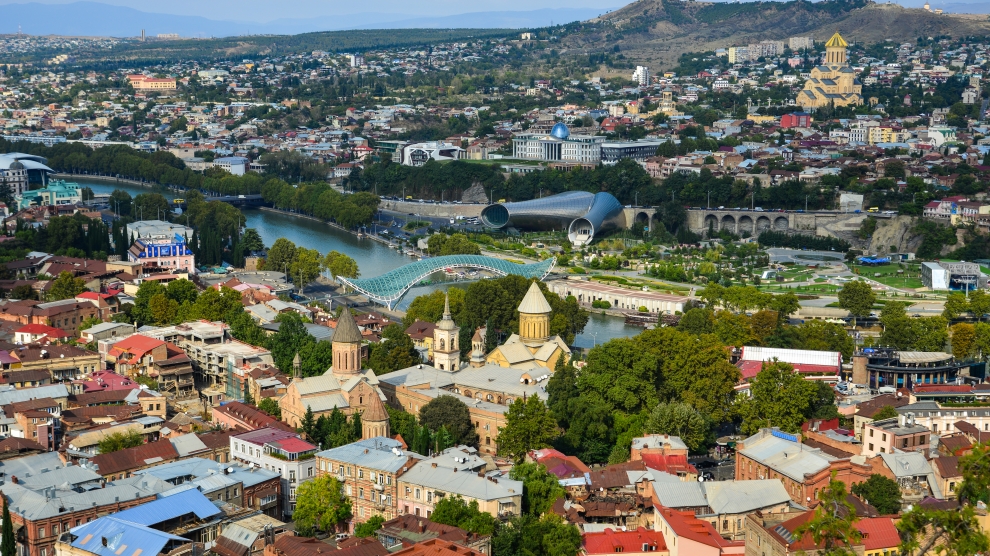The world is struggling with an invisible enemy. This is the first time in modern history when the world is in a full scale war against a virus that has had a truly global reach, impacting every single citizen one way or another. It is a truly extraordinary time that we live in, and we are facing a crisis that has been just as detrimental as a world war – not only remodeling existing economic and security architecture but also serving an agent of social alteration.
It’s nothing new to suggest that war brings technological advancement, while spreading ideas faster and at a more rapid pace than any kind of commercial activity. Thus we are at the historic brink of a new, totally different type of transformation brought to us by the Covid-19 pandemic.
What we are observing is a whole new wave of breakthroughs not only in healthcare or the tech industry, general protocols, or existing value chains, but we are also facing a completely new type of metamorphosis that will influence social lives, consumer behaviour and other elements of our daily life. We are facing a period of transformation of an unprecedented amplitude.
Global systems have fallen victim to the negative effects of the pandemic via a domino effect. In the world economy we have different points of gravity and every single point serves its own domain. For example, we have hubs that are main manufacturing pivots, while others relate to service industries and we have some that are large consumers. This kind of distribution has resulted in a domino effect, setting off a chain of explosions.
This crisis has shown us the importance of multimodality. There is clearly room for relatively small hubs that will be syndicates of different economic activity. I am not advocating against globalisation, on the contrary – all I am saying is that we have to be aware and able to outweigh the downside risks of this global phenomenon. And one of the ways that I propose to minimise such downside risks is via multimodal hubs. The creation of such hubs is possible with players who are willing to become facilitators of exchange, whether it will be social, cultural or economic.
This where I see opportunities for countries like Georgia to introduce radical reforms that may often not be popular, but are at the same time necessary. The fourth industrial revolution, coupled with the global pandemic, have already become a strong catalyst for an accelerated wave of change and transformation. There is a very famous saying: desperate times call for desperate measures, and that is exactly what every government in a similar situation to Georgia has to remember.
In reality, to simplify everything, I advocate competitiveness. Which itself means increased resilience and sustainability. These elements are of crucial importance especially when the process of restructuring value chains will start. This process is somewhat already underway, but will enter into full swing after the pandemic will ease. Countries similar to Georgia (here I mean countries that were determined to create all the necessary preconditions for becoming multi-dimensional hubs) should be prepared in order to position in the newly created business models, to prove their worth and to put their offer on the table. This is where human capital development enters the equation.
In order to fully capitalise on the upcoming influx of radical transformations governments should redirect investments toward human capital development and re-creation of labour markets.
The Georgian example can be a great precedent in this regard.
Last year we adopted legislation ensuring that every single following government is obliged to dedicate six per cent of GDP to the education sector.
The Covid-19 pandemic has forever changed the way investment destinations are evaluated and one of the major criteria in this decision-making process will eventually become assessment of a country’s public healthcare systems; their efficiency, robustness and sustainability.
Georgia has been successful in the fight against global pandemic, which is mainly due to the timely introduction of universal public health care reform in 2013 under the leadership of Georgian Dream. This reform together, with the successful operation of the Lugar Center for Public Health Research entailed a total transformation of Georgia’s healthcare infrastructure staffed with top-class professionals (obviously, healthcare system development is an integral part of the human capital development process). Such a comprehensive approach guaranteed the preparedness of healthcare infrastructure that managed to contain a crisis of such global magnitude.
Georgia has been regarded as a true outlier in our part of the world and one of the best places to do business recognised through rankings like World Bank’s Ease of Doing Business. Additionally, we managed to become a country with one of the lowest tax burdens in the world; we have achieved record low budget and current account deficits, and steadily increased our sovereign credit rating – but it is not enough. These accomplishments need to be coupled with a permanent human capital development process. This will become a successful formula, which will help Georgia to achieve a qualitatively higher level of economic development.
Lessons should be learnt, and one of the lessons which the Covid-19 pandemic has taught us is the importance of sustainability and inclusivity, through which the world will be able to minimise the negative impacts of major occurrences like a global pandemic.
—
Unlike many news and information platforms, Emerging Europe is free to read, and always will be. There is no paywall here. We are independent, not affiliated with nor representing any political party or business organisation. We want the very best for emerging Europe, nothing more, nothing less. Your support will help us continue to spread the word about this amazing region.
You can contribute here. Thank you.




